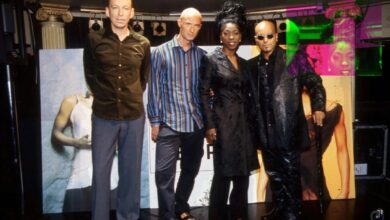Majority of Black Britons discriminated against by doctors and nurses, study finds

The majority of Black people living in Britain have reported being discriminated against by healthcare professionals because of their race, a landmark study has found.
Seventy-five per cent of Black people aged between 18 and 34 have experienced prejudice while visiting doctors and hospitals, the national survey found. Meanwhile, 65 per cent of all Black people living in the UK have faced this discrimination.
The research was commissioned by the Black Equity Organisation (BEO), the national civil rights organisation launched earlier this year to tackle systemic racism in the UK. Researchers also found stark disparities between the way Black people were treated when accessing healthcare compared with the way their white counterparts were treated.
Participants told researchers they felt their concerns were not listened to or incorporated into their treatment decisions. Black women particularly felt practitioners were dismissive of their pain because of the misguided stereotype of the “strong Black woman”.
Dame Vivian Hunt, BEO’s chair of trustees, said: “The key to change is identifying and recognising the reality of Black communities across the country.
“This research and our other report, Brick Wall After Brick Wall, provides a clear picture of what Black communities experience daily and will help shape our work and campaigns moving forward.
“We will work in partnership with communities, businesses, grassroots organisations and allies to deliver systemic change that will ensure those experiences become a thing of the past.”
The study is thought to be the most comprehensive piece of research into Black people’s lived experiences of racism in the UK to be produced in the past 10 years.
The BEO is now calling for an end to “prejudicial decisions being made by healthcare professionals when diagnosing and treating Black patients.
“In particular, in response to the findings of this report, BEO will focus on improving maternity care statistics and supporting healthcare providers to ensure that people with special educational needs and mental health issues are being catered for appropriately without suffering a detriment because of their race,” the report reads.
Previous studies have produced evidence of racial disparities in healthcare. In May, a year-long investigation into UK maternity care found that “systemic racism” is experienced by Black, Asian and mixed-ethnicity women.
Black patients in the UK are also subject to more intrusive treatments, such as injectable anti-psychotics, and are less likely to be offered talking therapy for severe mental illness.
The BEO’s research comes days after The Independent revealed that an NHS body will for the first time investigate racial inequalities faced by sickle cell patients, in the wake of a parliamentary inquiry into avoidable deaths.
In November 2021, a parliamentary Joint Committee on Human Rights (JCHR) found that more than 60 per cent of Black Britons did not believe their health was as equally protected by the NHS as that of white people. The researchers used a smaller sample size for this work.
The BEO survey also revealed wider disparities within the public sector. For example, more than 60 per cent of Black people said they had been passed over for promotion or employment due to their ethnicity.
Fifty-nine per cent said they or someone close to them had experienced stop and search by police or wrongful arrest, and 50 per cent of parents of under-18s said their children did not see themselves represented in either the teaching workforce or curriculum materials.
The study also highlighted differences in optimism and experience within the Black community and found that people in marginalised communities, such as Black LGBT+ people or older generations, were less confident.
For example, only 42 per cent of Black people over 55 and in the LGBT+ group of all ages were confident of their and their family’s future, whereas 70 per cent of Black Africans of all ages said they were confident.
The BEO’s study made use of an online survey of adults aged 18-plus in the UK.





